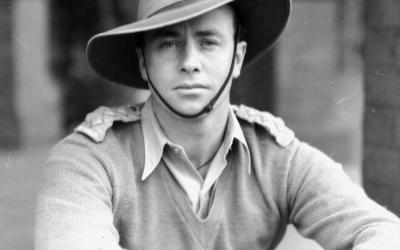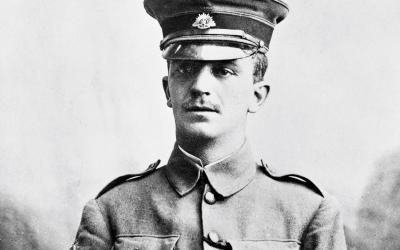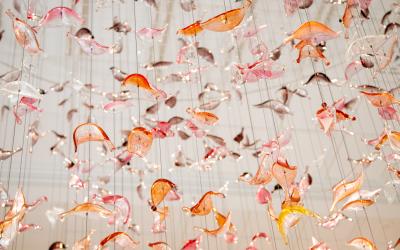Memorial Articles
The Memorial boasts a staff of subject specialists in all aspects of military history and museum practice.
Our articles and our Encyclopedia allow subject specialists to share their knowledge on Australian military history.
They also provide a way for us to take a closer look at the people and the stories behind the history and our museum collection.

The Appointment of Official War Artist Ivor Hele
Ivor Hele is Australia's longest serving official war artist. He was dedicated to depicting the raw experience of the Australian soldier.

Duty to Country, Devotion to Family
Two-year-old Shirley Elizabeth Haines’ world changed after her father enlisted for service in 1942. During his time away from home, Haines wrote letters about his wartime experiences with the intention to fill his daughter’s imagination with excitement and wonder.

Delivering the goods in hard places: the work of 3 Air Maintenance Company during the Second World War
In New Guinea during the Second World War, non-combat support units delivered essential supplies including weapons, rations, and medical supplies to Allied combat forces in remote and demanding terrain.

"In years to come, I can say I was the first man of the 37th Battalion to enter the front line”
Charles Herbert Johns was a prolific diarist. Within 16 months, he had filled four notebooks with his experiences and observations of life and service in the Australian Imperial Force.

The Heroic Tragedy of William Symons VC
The Memorial recently acquired an illuminated testimonial presented in 1916 by the Brunswick City Council to Captain William Symons, a Gallipoli recipient of the Victoria Cross.

Prime Minister opens new Main Entrance ‘for all’
The Prime Minister Anthony Albanese has marked a major milestone at the Australian War Memorial by officially opening the new Main Entrance

Glass sculptural installation by local artist, Annette Blair
The new installations, hand-made by Annette Blair at Glassworks Canberra, transform the newly constructed spiral stairwells into a place of remembrance and peace.

Places of Pride: a new cinematic film sits in the heart of the New Main Entrance foyer
The Australian War Memorial’s new Main Entrance now features a cinematic short film showcasing the diversity of memorials across Australia that honour the service and sacrifice of our nation’s veterans.

Harnessing the Horsepower of Mules on the Western Front
While much has been written about Simpson’s donkey, the role of his close cousin – the mule – has not been given as much attention. Mules were extremely useful modes of transport on the Western Front.